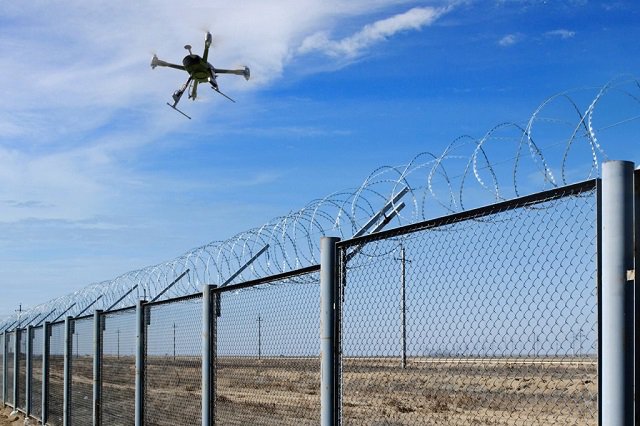
A city councilor wants to deploy drones to monitor high-crime neighborhoods and provide an extra measure of security at major community events – an idea that raises privacy concerns with the ACLU of Massachusetts.
Brian K. Gomes’ proposal, which is not expected to be heard until next month or possibly January, calls for a meeting between the City Council’s Committee on Public Safety and Neighborhoods and Police Chief Joseph C. Cordeiro to discuss the use of drones.
“I think it can be a crime fighter, undercover surveillance in neighborhoods across the city where we have problems,” Gomes said. “It’s another tool for the Police Department to fight crime.”
He said a customary police surveillance operation ? where undercover police officers stake out an area and watch for illegal activity ? is “time consuming” and the drones could do this necessary work much easier.
The councilor said the drones with their high-definition cameras could also be used to keep the public safe at major community events in New Bedford, spotting problems from the air and relaying the information to officers on the ground.
Gomes noted how the Police Department used a helicopter, equipped with surveillance cameras that relayed real-time images to police computer tablets on the ground, to arrest nine men on Halloween, who were riding all-terrain vehicles and dirt bikes and repeatedly disrupting neighborhoods.
“It would send a clear message to criminals that we’re coming up with new ways of watching them and you may want to do your business elsewhere,” he said of the drones.
Gomes said he has not spoken with Cordeiro about his idea, but believes it will be well received. “I think Chief Cordeiro and Deputy Chief (Paul) Oliveira have creative minds, and I’m sure they have thought of it also,” he said.
Cordeiro seemed receptive to the idea.
“I’m not opposed to using any technology that would ensure the safety and tranquility of our citizens. Beyond that, I’m open-minded to all technology,” the chief said, adding that the use of any drones by NBPD would be in compliance with the law. “We’re always looking for new technology. We will use any technology within its legal guidelines,” he said.
The Police Department already has two drones, Cordeiro said. The late New Bedford Police Chief David A. Provencher said in a January 2015 interview with The Standard-Times that the department uses its drones for marine search, rescue and recovery operations and he envisioned at the time also using them in hostage situations.
But the ACLU of Massachusetts said law enforcement’s use of drones as a surveillance tool raises questions about people’s privacy rights.
Kade Crockford, director of the American Civil Liberties Union of Massachusetts’ technology for liberty program and its privacy rights coordinator, said they have supported legislation in two past sessions of the Legislature, requiring a search warrant when police want to use a drone.
The legislation failed both times and currently there is no requirement for law enforcement to get a warrant before using a drone, she said.
“Technology moves much faster than the law, and the law needs to catch up,” she said.
The ACLU’s concern is based on privacy. “The First Amendment gives people the right to dissent without being watched by police,” Crockford said.
She said she does not believe the use of drones will stop crime, but will “freak out people as they conduct their lives.”
The ACLU is not alone in its concerns about privacy. “Me, personally, I’m 100 percent against it,” said Jerry Pinto, president of Neighborhoods United, the umbrella group for all of New Bedford’s neighborhood organizations.
Pinto said he has weighed the importance of monitoring problem areas in the city from the sky, but believes the price is too high. “I really feel the drones are a way to invade our privacy. I personally feel America has forgotten about its rights,” Pinto said.
“America is losing its freedom little by little. I’m not for it at all,” he said.
Police on SouthCoast have used drones to a limited degree and recognize their value, but also emphasize the need to work within the law.
While his department doesn’t have any, Bristol County Sheriff Thomas M. Hodgson said he sees the use of drones for surveillance purposes in high crime areas as beneficial to law enforcement, explaining criminals regularly use high technology to conduct their illegal activities. He said, though, he would want to make sure the safety of the public was ensured in the event a drone crashed.
“Criminals using new technology make it a challenge for us,” he said. “Whatever means you can use to create a presence to deter crimes, providing it is done safely, I see it as a benefit to public safety.
About The Author
By Curt Brown
The Standard-Times

